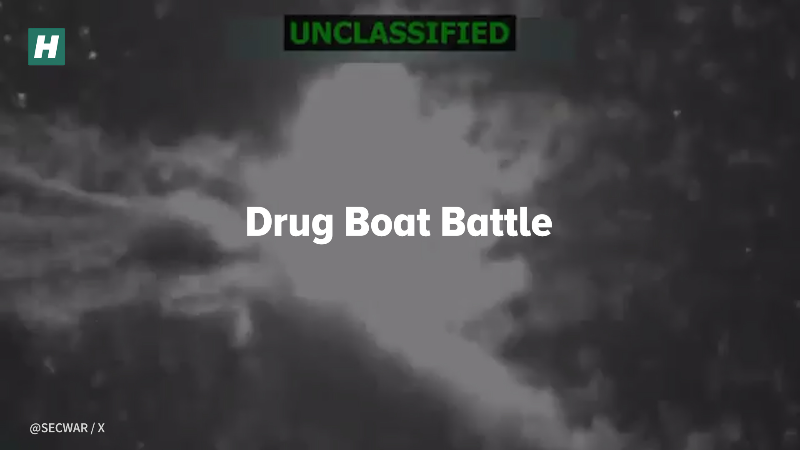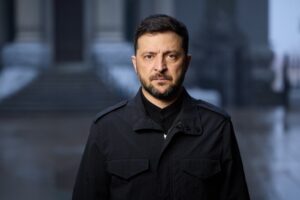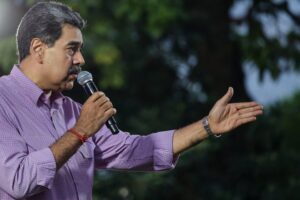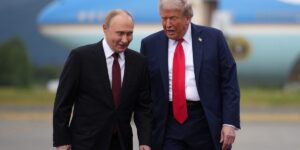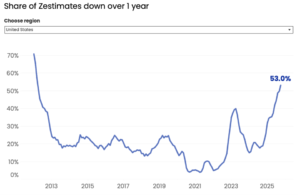U.S. To Launch New Phase Of Venezuela Operations, Sources Say
Two U.S. officials told Reuters the options under consideration included attempting to overthrow President Nicolas Maduro.
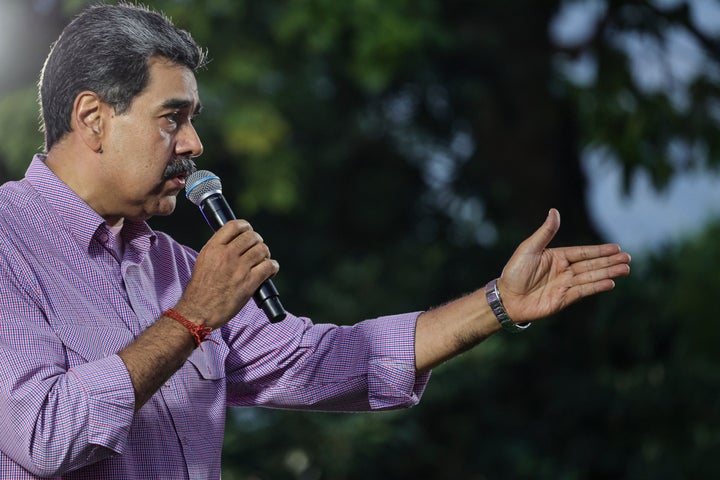
WASHINGTON, D.C., Nov 22 (Reuters) – The United States is poised to launch a new phase of Venezuela-related operations in the coming days, four U.S. officials told Reuters, as the Trump administration escalates pressure on President Nicolas Maduro’s government.
Reuters was not able to establish the exact timing or scope of the new operations, nor whether U.S. President Donald Trump had made a final decision to act. Reports of looming action have proliferated in recent weeks as the U.S. military has deployed forces to the Caribbean amid worsening relations with Venezuela.
Two of the U.S. officials said covert operations would likely be the first part of the new action against Maduro. All four officials quoted in this article spoke on the condition of anonymity because of the sensitivity of impending action by the United States.
The Pentagon referred questions to the White House. The CIA declined to comment.
A senior administration official on Saturday did not rule anything out regarding Venezuela.
“President Trump is prepared to use every element of American power to stop drugs from flooding into our country and to bring those responsible to justice,” said the official, speaking on the condition of anonymity.
The Venezuelan Communications Ministry did not immediately respond to a request for comment.
The Trump administration has been weighing Venezuela-related options to combat what it has portrayed as Maduro’s role in supplying illegal drugs that have killed Americans. He has denied having any links to the illegal drug trade.

Two U.S. officials told Reuters the options under consideration included attempting to overthrow Maduro.
Maduro, in power since 2013, has contended that Trump seeks to oust him and that Venezuelan citizens and the military will resist any such attempt. He also has characterized U.S. actions as an effort to take control of Venezuela’s oil.
A military buildup in the Caribbean has been underway for months, and Trump has authorized covert CIA operations in Venezuela. The U.S. Federal Aviation Administration on Friday warned major airlines of a “potentially hazardous situation” when flying over Venezuela and urged them to exercise caution.
Three international airlines cancelled flights departing from Venezuela on Saturday after the FAA warning.
The United States plans on Monday to designate the Cartel de los Soles a foreign terrorist organization for its alleged role in importing illegal drugs into the United States, officials said. The Trump administration has accused Maduro of leading Cartel de los Soles, which he denies.
HEGSETH: NEW OPTIONS AFTER TERRORIST DESIGNATION
Washington in August doubled its reward for information leading to Maduro’s arrest to $50 million. But U.S. Defense Secretary Pete Hegseth said last week that the terrorist designation “brings a whole bunch of new options to the United States.”
Trump has said the upcoming designation would allow the United States to strike Maduro’s assets and infrastructure in Venezuela, but he also has indicated a willingness to potentially pursue talks in hopes of a diplomatic solution.
Maduro said earlier this week that the countries’ differences should be resolved through diplomacy and that he is willing to hold face-to-face talks with anyone interested.
Two U.S. officials acknowledged conversations between Caracas and Washington. It was unclear whether those conversations could impact the timing or scale of potential U.S. operations.
The U.S. Navy’s largest aircraft carrier, the Gerald R. Ford, arrived in the Caribbean on November 16 with its strike group, joining at least seven other warships, a nuclear submarine and F-35 aircraft.
U.S. forces in the region so far have focused on counter-narcotics operations, even though the assembled firepower far outweighs anything needed for them. U.S. troops since September have carried out at least 21 strikes on alleged drug boats, killing at least 83 people, mostly in the Caribbean, although vessels in the Pacific Ocean also have been targeted.
Human rights groups have condemned the strikes as illegal extrajudicial killings of civilians, and some U.S. allies have expressed growing concerns that Washington may be violating international law.
The Trump administration has said for months that the attacks on boats are meant to curb trafficking of drugs it says kill millions of Americans. However, most drug overdose deaths in the United States are caused by fentanyl, which is largely manufactured in Mexico.
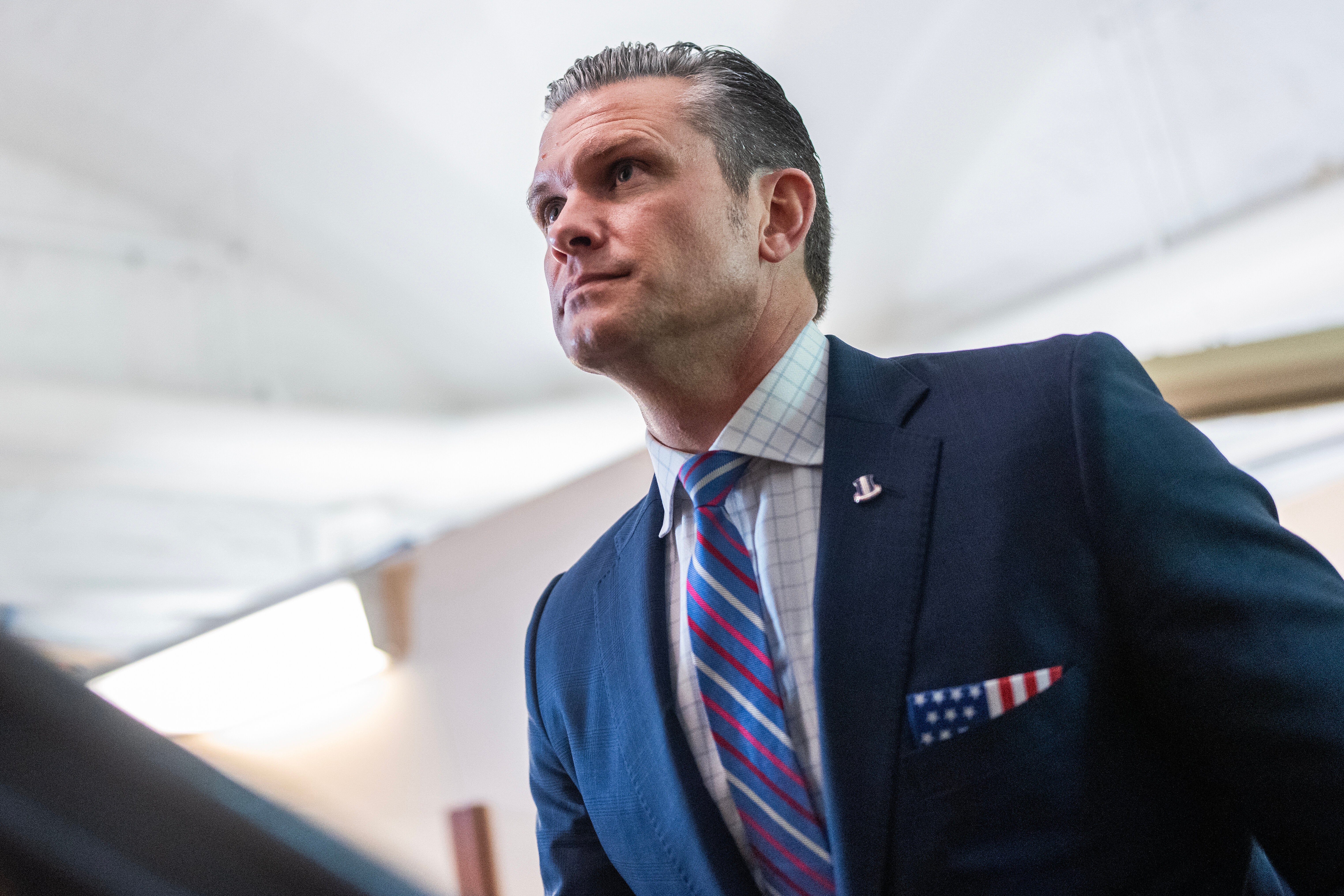
Drug traffickers move some cocaine through the Caribbean, according to international organizations, but much of the supply for North America moves on the Pacific.
The U.S. military dwarfs Venezuela’s, which is debilitated by a lack of training, low wages and deteriorating equipment.
That reality has led Maduro’s government to consider alternative strategies in the event of a U.S. invasion, including possibly a guerrilla-style response, which the government has termed “prolonged resistance” and mentioned in broadcasts on state television.
This approach would involve small military units at more than 280 locations carrying out acts of sabotage and other guerrilla tactics, Reuters has reported, citing sources and years-old planning documents. (Reporting by Phil Stewart and Idrees Ali; Additional reporting by Juliya Symmes Cobb and Andrea Shalal; Editing by Craig Timberg, Sergio Non and Diane Craft)

